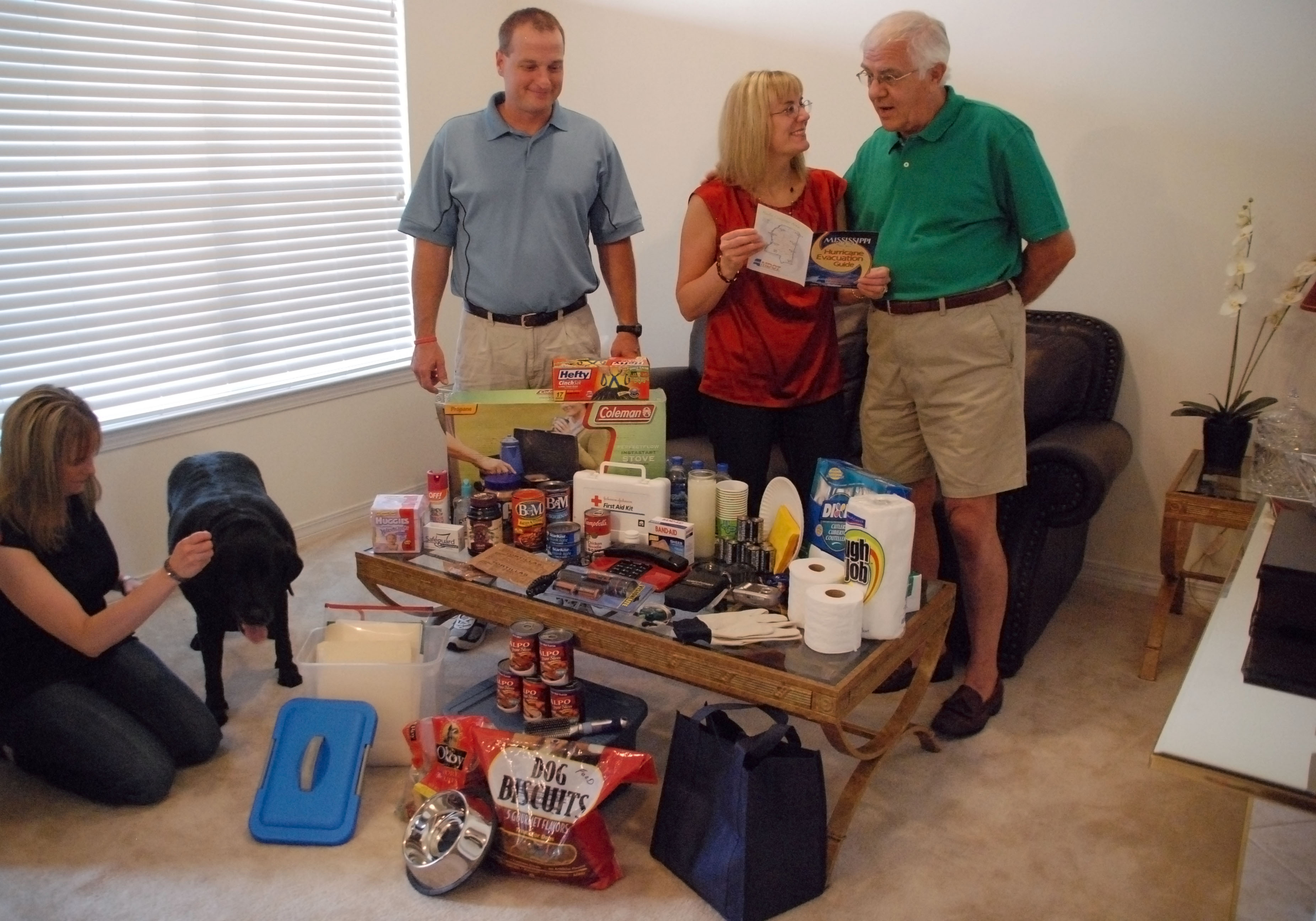Disaster Preparedness Tips
 Tuesday, August 17, 2010 at 11:15AM
Tuesday, August 17, 2010 at 11:15AM - Make sure your family has a plan in case of an emergency. Before an emergency happens, sit down together and decide how you will get in contact with each other, where you will go and what you will do in an emergency.
- Determine a neighborhood meeting place, a regional meeting place and an evacuation location.
- Identify an out-of-town emergency contact. It may be easier to make a long-distance phone call than to call across town, so an out-of-town contact is important to help communicate among separated family members. Be sure every member of your family knows the out-of-town phone number and has coins or a prepaid phone card to call the emergency contact. You may have trouble getting through, or the telephone system may be down altogether, but be patient.
- You may also want to inquire about emergency plans at places where your family spends time, such as a place of employment. If no plans exist, consider volunteering to help create one.
Get an emergency supply kit. Be sure to consider additional items to accommodate family members' special needs: - Prescription medications and glasses
- Infant formula and diapers
- Pet food, extra water for your pet, leash and collar
- Important family documents such as copies of insurance policies, identification and bank account records in a waterproof, portable container
- Books, games, puzzles or other activities for children
- Talk to your neighbors about how you can work together in the event of an emergency. You will be better prepared to safely reunite your family and loved ones during an emergency if you think ahead and communicate with others in advance.
For Parents:
If you are a parent, or guardian of an elderly or disabled individual, make sure schools and care providers have emergency response plans:
- Ask how they will communicate with families during a crisis.
- Ask if they store adequate food, water and other basic supplies.
- Find out if they are prepared to "shelter-in-place" if need be, and where they plan to go if they must get away.
For Workplaces:
- Take a critical look at your heating, ventilation and air conditioning system to determine if it is secure or if it could feasibly be upgraded to better filter potential contaminants, and be sure you know how to turn it off if you need to.
- Think about what to do if your employees can't go home.
- Make sure you have appropriate supplies on-hand.
For Communities:
Find out what kinds of disasters, both natural and man-made, are most likely to occur in your area and how you will be notified. Methods of getting your attention vary from community to community. One common method is to broadcast via emergency radio and TV broadcasts. You might hear a special siren, or get a telephone call, or emergency workers may go door-to-door. Contact a nearby Citizen Corps Council for help with emergency planning, or work with your local government and emergency management office to help start a Council in your area. Visit www.citizencorps.gov to find local Councils in your community.
For additional tips and information, visit www.ready.gov
 Champion,
Champion,  Champion Construction Systems,
Champion Construction Systems,  Community News,
Community News,  Community Service,
Community Service,  Current Events,
Current Events,  Emergency Planning,
Emergency Planning,  Storm Damage,
Storm Damage,  Uncategorized,
Uncategorized,  atlanta,
atlanta,  atlanta ga,
atlanta ga,  champion construction,
champion construction,  disaster,
disaster,  disaster planning,
disaster planning,  disaster preparedness,
disaster preparedness,  disaster preparedness month,
disaster preparedness month,  disaster recovery plan,
disaster recovery plan,  disaster safety,
disaster safety,  disaster supply kit,
disaster supply kit,  emergency plan,
emergency plan,  emergency preparedness,
emergency preparedness,  family emergency paln,
family emergency paln,  sharpsburg
sharpsburg  Email Article
Email Article 


Reader Comments